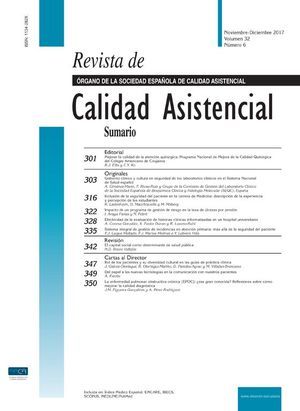The scenario of the health system can develop physical and emotional impacts on health professionals, due to work overload and failure to manage the system. It is necessary to consolidate the theory that the safety of care provided by health services is affected by organizational conditions. The aim of this study is to assess whether safety culture is related to job satisfaction, depressive symptoms, and burnout syndrome among hospital professionals.
Materials and methodsThis is an analysis with structural equation modeling, conducted in a teaching hospital in Brazil. Data collection was made via psychometric instruments, which sought to analyze job satisfaction (Job Satisfaction Survey), depressive symptoms (Patient Health Questionnaire), burnout syndrome (Maslach Burnout Inventory), as well as the relationship between this factors and patient safety culture (Safety Attitudes Questionnaire). The Pearson correlation coefficient (r) and the partial least squares structural equation modeling (PLS-SEM) were used for analysis.
ResultsA higher work satisfaction was associated with a higher perception of safety culture (r=0.69; P<0.001). Depressive symptoms and burnout dimensions showed an inverse relationship with the safety culture (P<0.05). PLS-SEM enabled us to understand the behavior of this association. Thus, satisfaction at work and the absence of burnout proved to be predictive factors for the implementation of an ideal patient safety culture (P<0.001).
ConclusionsPatient safety culture is related to job satisfaction and burnout among hospital professionals. These findings suggest that the psychosocial work environment influences the quality of care provided.
Artículo
Comprando el artículo el PDF del mismo podrá ser descargado
Precio 19,34 €
Comprar ahora










